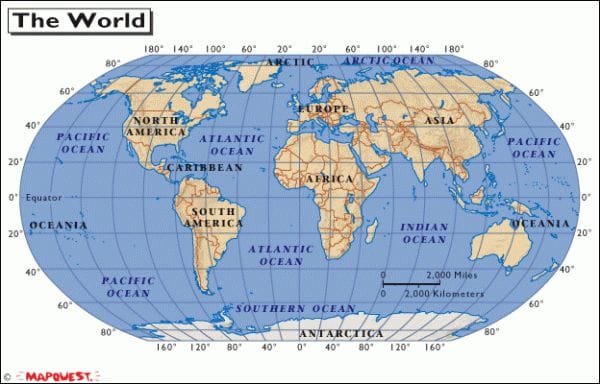Foreign Policy and US Elections (Views From Elsewhere)

Photo: go.hrw.com

How much impact does foreign policy have on American elections? Do we know? Do we even think much about it? But foreign policy affects all of us. We need to realize this.
Eurasia Review puts it this way:
"And like every other time, the perennial electoral question arises: do foreign policy issues matter at all in US Presidential elections? Do US voters really think of Iran, Afghanistan, Iraq, China, etc. or of issues like climate change, nuclear proliferation or democracy promotion, etc. before casting their votes? Polls after polls conducted by reputed organizations in the US continue to prove that domestic issues matter much more. This year, the fate of the US economy and its impact on the day-to-day lives of Americans reigns supreme in the minds of the voters. Foreign policy matters, according to various polls, do not determine voting patterns significantly."
We need to see who has the best ideas in foreign policy. But repeatedly we hear pundits and the average person talking more about social issues with only a small tip towards the much bigger international picture that America is part of.
And with a president that may have hurt relations with our allies; we need to be thinking of this fact when we vote.
When it comes to the diplomatic and security outlook for the next U.S. Administration, the V4’s potential contributions to regional defense and the European periphery should figure prominently on the agenda. Above all, Visegrád members represent committed allies of the United States and will continue to cooperate with Washington despite occasional difficulties.
Whoever wins this next election needs to be someone that can work in both national social issues and foreign policy too. The American people also need to think about foreign policy when picking politicians.
The Jerusalem Post says, “It’s not just what Romney and Obama are saying on Iran, but how they’re saying it.” Foreign policy is not just one subject, but multiple subjects we need to be aware of.
Right now, we are increasingly being seen as a country that pays attention only to what matters to us now, not what will affect us later. But foreign policies affect us all in the long-term.
Even the New Eastern Europe had this to say after a recent poll showed a drop favor towards the US:
“It used to be a mixture of inferiority complex and sincere admiration, and so it stays with many people who did not catch up with the realities of modern times,” Babich said to me. “The more astute observers (still a minority) note that the US more and more often makes mistakes. [America] is no longer a real ‘lord protector’ of democracy as it truly was in the 1930s to the 1980s.”
And they leave us a message: “American voters need to start paying attention to this side of the world. They should not only ask themselves which candidate is best for domestic policy, but consider foreign policy (especially toward Russia) in the voting booth. Who will be strong enough…”
This attitude is not new. It has gone on for some time now in our history. The American voter has paid little to no attention to foreign issues that we should be engaged with. We need to change that. America needs to broaden its view of its political candidates and be aware of the world outside its borders.



